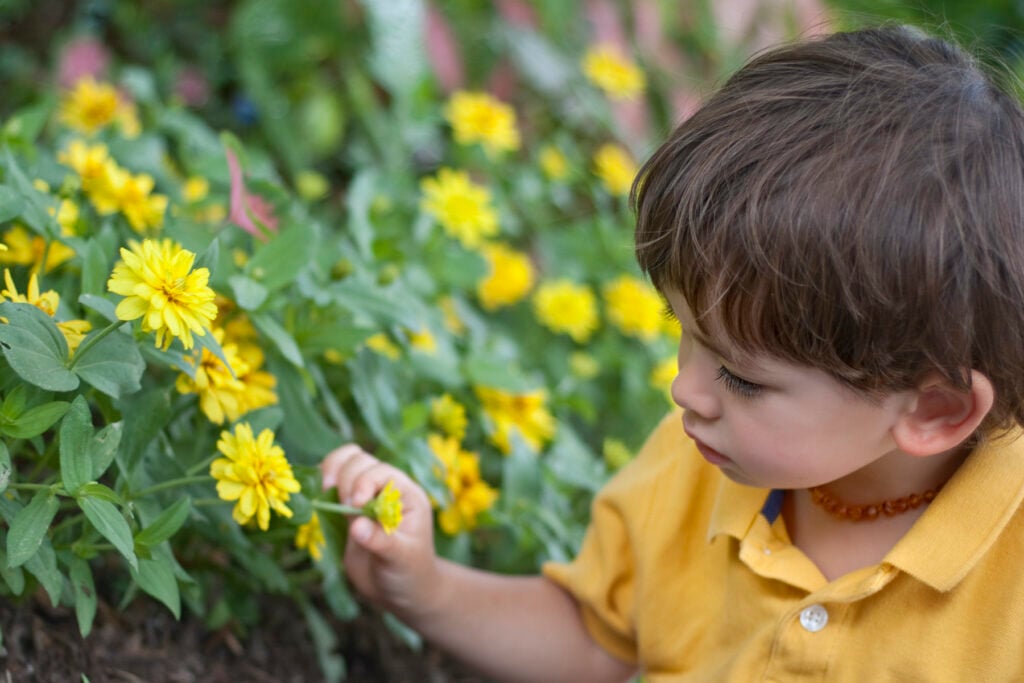The Gift of Positive Self Esteem – Encouraging Your ADHD Child
Self-esteem starts in early childhood. A child receives both positive and negative messages from others around him depending on how well they fit into society. When you practice Attachment Parenting, you help form a strong bond and develop early positive self-esteem.

Because children with Attention-Deficit / Hyperactivity Disorder can be perceived as different, they often receive negative messages. These messages from adults and peers often evolve into the negative self-talk we read about in many self-help books today.
Once this all too common downward spiral begins, ADHD kids often feel they can’t do anything right.
Children with ADHD experience higher levels of stress in the school environment than most children. They often need hands-on interactive learning, are talkative and social, and need to move around to learn best.
The school environment is not particularly conducive to this style of learning. Many of the messages they receive at school can also hinder high self-esteem. If you practice attachment parenting and gentle discipline strategies, you’ve already established a strong bond with your child. But sometimes they need a little boost when it comes to dealing with life outside the home.
Tools for Encouraging Your ADHD Child
Thankfully, there are therapeutic techniques that any parent can use to counteract negative self-talk, help a child release stress, and feel happier. These include positive reinforcement, relaxation, and guided imagery.
Try to “catch” your child doing something good and compliment them.
Kids with ADHD are often the first to offer a solution and always ready to jump in and help. When we begin to see the gifts in our children, our world and theirs can completely turn around. Positive reinforcement helps your child heighten his self-esteem because he begins to focus on what he is doing right, rather than constantly being forced to look at what he does “wrong.”
Learn to laugh at life with your child.
Talk about how being different can be fun and celebrated. Laughter reduces stress and produces endorphins; the “feel good” chemicals in the brain that makes us feel happier. ADHD kids really give us the gift of helping us understand that not everything needs to fit perfectly into society’s mold. Not only do they push us out of our comfort zone, but also give us the gift of personal growth if we allow it.
To release frustration and tension, teach your child simple relaxation techniques like deep breathing.
Deep breathing relaxes the tensed body and the busy mind. It oxygenates the brain and relaxes muscles. Breathing deeply and steadily is an immediate signal to the body that all is well. Children who are taught this skill (try this Deep Breathing Guided Relaxation script) can use it as a tool when necessary to release tension and stress and better handle situations that come in life. In a relaxed state, they can better control their emotions.
Guided imagery and positive visualization tremendously help ADHD children to focus and channel their abundant energy in positive ways.
These easy-to-use methods incorporate the power of deep relaxation while utilizing the active ADHD imagination. Reading a guided relaxation script to your child can erase the old programming and negative messages ADHD children may have received. These techniques go right to the heart of the matter – the subconscious mind and help develop new responses and new positive ways of thinking.
As you shift your expectation and practice these steps, you’ll see your child’s self-esteem improve greatly. Most importantly, your ADHD child will be equipped with the tools he needs for developing a positive self-image and high self-esteem.
Never underestimate the power of a little well-earned praise when it comes to encouraging your ADHD child. “In more than 20 years of working with children and adults who have ADHD, I’ve learned that they all carry buried treasures and hidden talents that must be excavated in order to be developed,” explains Dr. Edward Hallowell. “Praise is one of the best pick-axes in this important mining expedition.”


Thank you for this. I struggle with the possibility that my child is ADHD but am not ready to go down the road of being “tested” and medicated. These are great things for me as a mother to remember.
This is a great read for anyone dealing with ADHD. I try to stay as positive as possible with my daughter and encourage her to do her best. She has times where she struggles, but she does her best to overcome the hurdles she faces. I don’t push perfection on her and let her be herself. Thanks for writing!
Hi Liz, Thank you for the comment. What I really am grateful for is that ADHD helps us begin to see life differently and each child as completely and utterly unique. We are forced to ask our own deep personal questions of what is considered ‘acceptable’ in our society and what’s not. We also grow as parents and people.
As long as we help our children keep their self esteem intact, it is MUCH easier for them as they grow and change. One of the key things I have taught my own 11 year old ADHD child is that we MUST learn to laugh at life and not take things so seriously.
Just last night he came to me as I was brushing my teeth and showed me his hand COVERED with so much lotion all I could see was WHITE! “I got too much Mom, I’m sorry” he said as I starred at his hand trying to figure out what that was. I then burst into laughter which made him laugh too. Then I told him I was happy because I was JUST thinking that I needed some lotion. He shared it with me and then we had to cream up our arms as well because there was so much! My point is, in simple moments like these, we have the opportunity to show them that things happen, it’s not a huge deal. We can usually fix it. Most importantly, he didn’t end up feeling like a failure at dispensing lotion.
So with ADHD parenting, I feel like we have to de-stress ourselves and then we also must help our children deal with the ADHD and learn to recognize and use it’s strengths to their advantage!